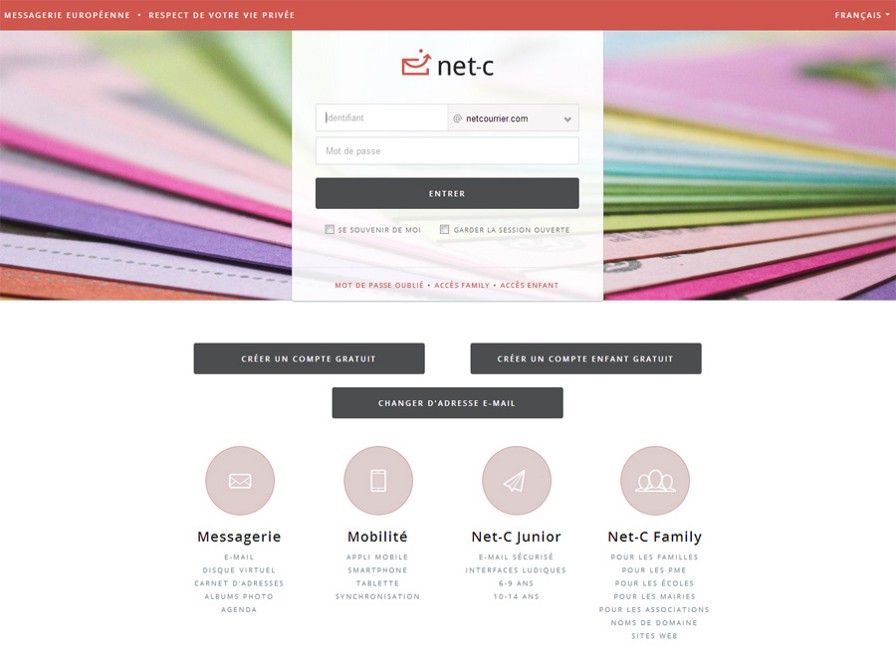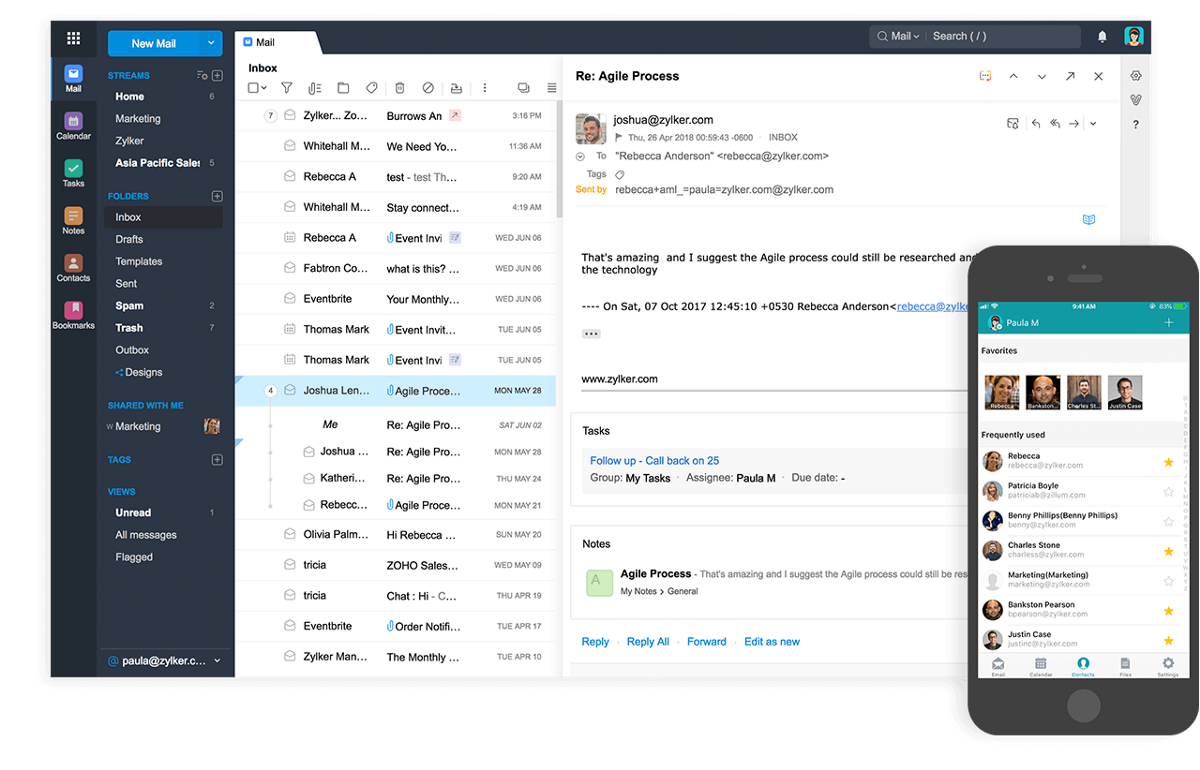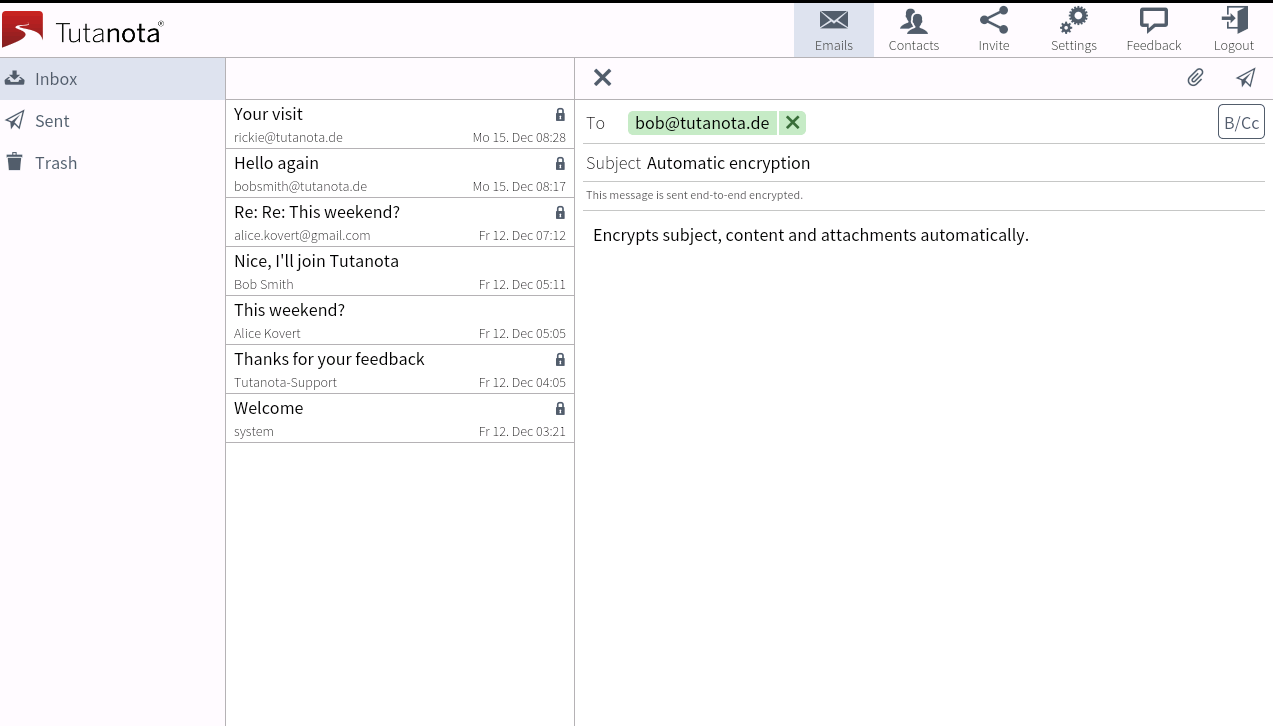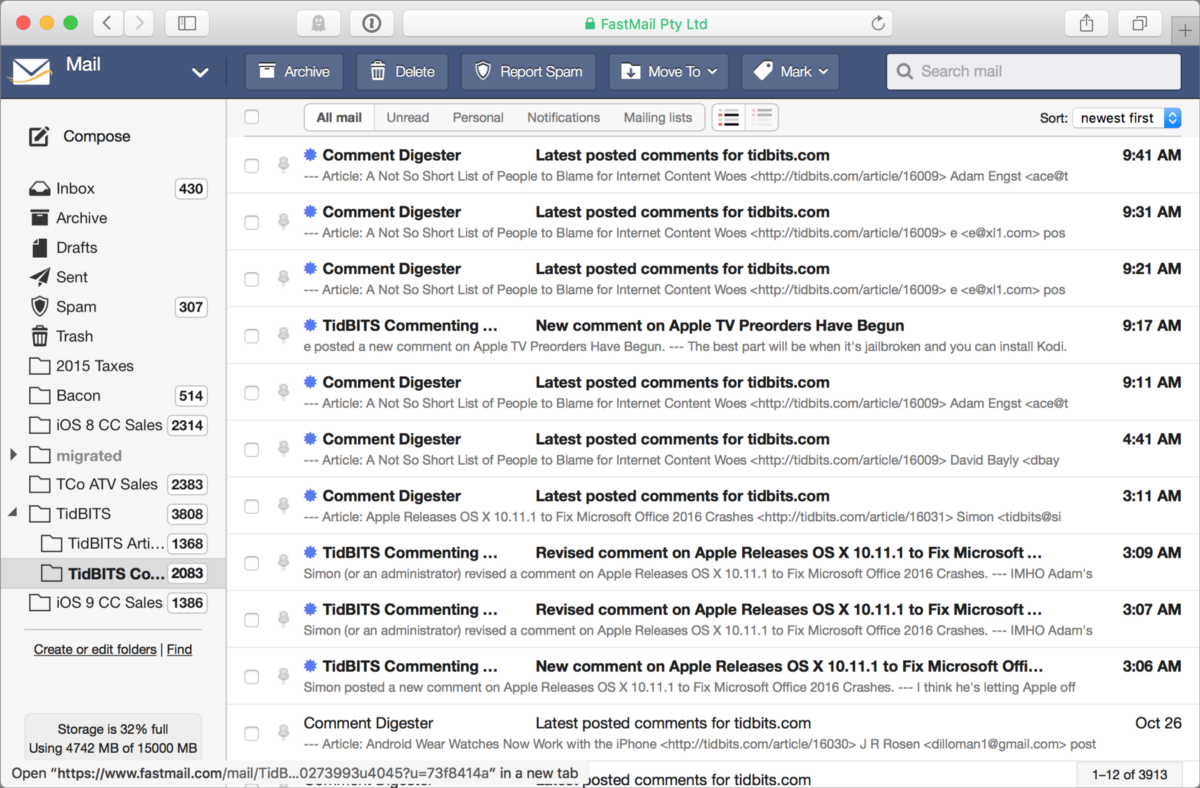


All our advices to make the best choice
Many Internet users ask us about the creation of an email service. Our teams have been working on this project for several months now. Creating an email service means ensuring full privacy, end-to-end encryption etc. It also means allowing perfect interoperability with all other email service providers and thinking of a high-performance service that offers a simple, fluid and secure experience for our users.
It is therefore a real technical, economical and human challenge that our teams are committed to confront! This is why, in the meantime, we decided to offer you several email service alternatives that support the same values as Qwant : the respect of users’ privacy.
When you start to be interested in protecting your privacy online, one of the first things you want to protect is online communication. Messaging often presents real data leakage problems.
While they are supposed to be private between two people, exchanges are often readable in clear text on the network by tech companies. They use this information to analyze your habits and collect lists of your correspondents in order to create a “social graph” of your knowledge.
Most of the free email services are paid for by advertising to their users. Some services have reached the point where they scan all your emails to present you with advertising tailored to your habits. Some will say that they prefer to see customized advertising rather than advertising that does not necessarily correspond to their interests.
The problem is that there are many reasons today that lead large platforms to have a look on your emails and some services are useful and make it easier for users to give out their personal information. By reading your emails, Google can keep you informed about traffic jams or delays on your next flight, add appointments directly to your calendar or offer you the possibility of replying quickly to an email for you. These services include reading your emails with artificial intelligence, tracking your online visits and locating you. In the future, it could include information collected by your personal assistant at home, your smart watches or your car. As artificial intelligence improves its intelligence, it becomes more and more demanding in terms of raw materials: information about you. In other terms, email analysis to personalize advertising is a relatively small problem if we consider the problem as a whole. The real issue is that the web economy built by these giants is based on surveillance.
“We read your emails for your own good”
Gmail is one of those companies that use email to improve their user profiles, and they say so loud and clear in their general terms of use:
“Our automated systems analyze your content (including emails) […] when sending, receiving and storing content. But beyond reading emails, Google uses Gmail as a Trojan horse that allows you to track a user in your web browsing on your PC, but also to connect that user to your smartphone, when you connect with the same ID.”
That’s why getting rid of Gmail must be a first priority for anyone who wants to limit their online tracking. Luckily, there are many alternatives today!
Most Internet service providers offer mailboxes, usually with a webmail (you can consult your mail from any web browser). All you have to do is look on your ISP’s website to find out how to access webmail and tell your contacts the address you were given when you took out your Internet subscription. However, this solution makes you dependent on this service provider, as your email address must change if you decide to use another plateform. We will see later that it is possible to manage your email from a personal domain name.
An email client like Mozilla Thunderbird (Mac, Windows and Linux compatible) is available for free download from https://www.mozilla.org/fr/thunderbird/. Like Firefox, it is a free software also produced by the Mozilla Foundation.
Apple users (Mac, iPad and iPhone) can use the Mail.app application although it is the defect of not being open sources For Android phones, the free K-9 Mail application can be used.
The settings necessary to tell these software which mailbox to use are listed on your ISP’s website. The use of email software makes it easier to share email reading on multiple devices, thanks to the use of the Imap protocol.
Nothing of what is described above is very complicated so don’t get discouraged right away! We can go even further to get more control over our email. Let’s consider some ideas on this topic together.
Imagine an address with your firstname@lastname.com. It is entirely possible for everyone to have the equivalent, as long as you buy your own domain name. To do this, you must go to companies like Gandi.net, Online.net or OVH.com that offer such services for around fifteen euros per year, including a domain name (if available) and one or more mailboxes, to offer as a gift to family members!

In the movie Imitation Game, cryptologist Alan Turing is commissioned by the British government to unlock the secret of the famous German encryption machine Enigma, known to be tamper-proof.
It is important to know that when the mail was invented, it was not intended to encrypt its content. And today, this is still the case: when you send an email to a correspondent, the message is relayed by several email servers that are likely to read it. Sending an email today is a bit like sending a postcard without an envelope: postal employees can read it, even if we suspect that they only very rarely do so.
It is possible to encrypt your emails, but it takes a lot of effort. The Free Software Foundation offers a good tutorial that explains how to do it well: Self-defense email https://emailselfdefense.fsf.org/fr/. It is also possible to attend free events called “privacy cafés” https://xn--caf-vie-prive-dhbj.fr/. Hosted by volunteers, these are great opportunities to meet others interested in encrypting their messages and to learn how GPG or other encryption software works through an exchange of experiences.
If you are not comfortable with the method but still want to switch to encrypted email, ProtonMail may be of interest to you. The company, which is based in Switzerland, offers an Open Source service and is one of the most privacy-conscious messaging plateform available to its users. E-mail exchanges are encrypted and self-destructing. However, it only provides 500 MB of storage in its free version. If you want to make it your main mailbox, you will have to choose ProtonMail Plus for 48€ per year with 5GB of storage, while ProtonMail Visionary costs 288€ per 20GB.

Net-C is a French company that shares our virtuous concerns to protect your privacy. This free messaging service offers a very complete service with a junior version (Net-C Junior) so that children can enjoy a secure messaging service. On the webmail, it is possible to send a registered or encrypted e-mail in PGP. But that’s not all, Net-C offers a series of additional services accessible from a customizable dashboard with storage space for documents, photos, a favorites manager and an RSS feed reader. And you will quickly notice that they have chosen a great search engine! In its free offer, the service offers 1 GB of storage. To benefit from 20 GB of capacity + 5 GB of storage space, all without advertising, you will have to pay 12€ per year.

Zoho Mail is another alternative. This service is mainly aimed at professional users and includes an online office suite. It offers a free service with 5 GB of email storage space for you to try it out. The paid version costs €24 per year for 30 GB of storage and offers other features such as domain name aliases and Microsoft Active Sync support.

Tutanota is a service that was created following Edward Snowden’s revelations by 3 encryption experts, Tutanota has made data protection its main focus. In addition, the service encrypts not only messages, objects and attachments but also lists of your contacts. All data is transmitted via the company’s servers located in Germany. The service creates public and private keys as soon as the account is created that will allow you to encrypt your exchanges. In its free version, Tutanota offers 1 GB of storage. With €12 per year, the user has 1 GB of storage with a custom domain name and for €60 per year, it is possible to go up to 10 Gb of storage.

FastMail is a popular alternative, as it offers good support without advertising and tracking but it is not free. The basic service with 2 GB of storage costs $30 per year, while the higher version with 25 GB costs $50, to upgrade to 100 GB you will have to pay $90 per year. It is possible to try the service for free for 30 days, note that a migration guide to help you migrate is available.
To protect your privacy, try the Qwant search engine, which does not collect your personal data.
For more tips on protecting your privacy, follow Qwant on its social networks (Facebook, Twitter) and join the Qwant Club on Telegram to interact with our community.